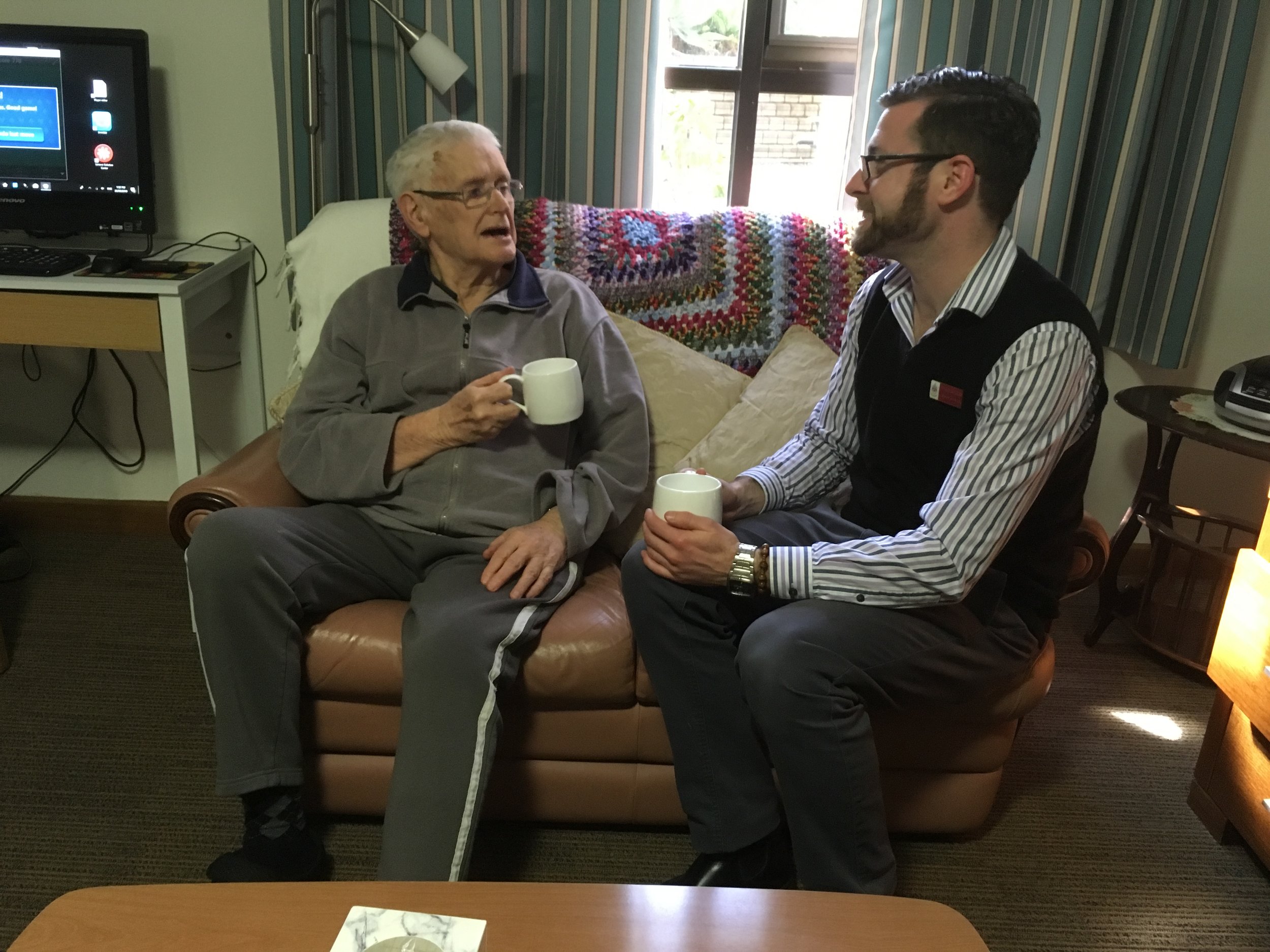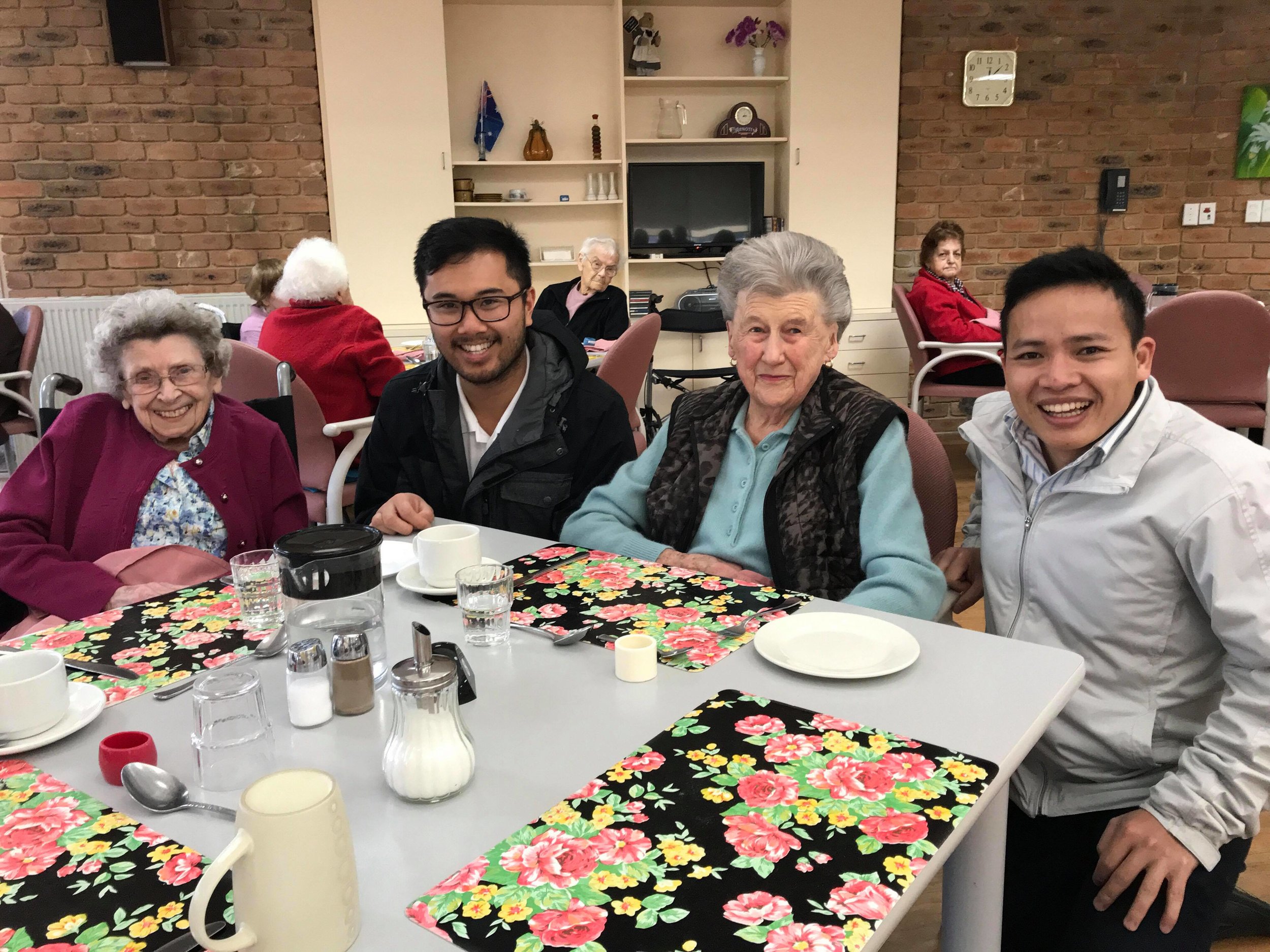By: Edward Jonas Ibarra
Nursing homes can be a bit intimidating for a young seminarian on pastoral placement. It might be those occasional unpleasant smells or a resident wandering about in confusion, there are many moments which can take you out of your comfort zone. But as I would soon find out, sometimes it's good to have your comfort zone pushed, sometimes this is the only way to learn the simplest truths.
Before starting our placement, we attended an induction and were asked to write down three things we hoped to get out of our time there. After some thought I scribbled: a better listener, an increase in patience and to become more understanding.
After my first day, the thought consuming my mind was, ‘how do the nurses and the pastoral care assistants manage to do this every day?’ And so, I asked one of the staff members, she replied, “you’ve got to have the love for it, it’s not about the job, it’s about loving them”. I was taken aback by those words, and they became my motivation for the following three weeks. I know it sounds clichè and rather simple, but really love is all you need.
It is the root of every vocation no matter whether you are a nurse, pastoral care assistant or a seminarian. And I don't mean a shallow type of love either, but a love that goes beyond what I can give; a love that comes from God.
My time on placement also made me stop and consider how society views the elderly these days. If we are being honest some are valued but others are viewed as a burden. Sadly, this attitude has led some elderly residents to wonder whether their lives are still worthwhile. I witnessed signs of this vulnerability and anxiety during my conversations with some of the residents. But despite their weathered appearances, declining health and occasional dispositions of unworthiness, I also witnessed profound wisdom, a treasure trove of knowledge and a deep level of maturity only acquired by a lifetime of ups and downs.
Throughout the three weeks, I was not just limited to deep and meaningful conversations either. I was able to enjoy the youthfulness and energy on display when it came to daily activities such as quizzes, sing-a-longs, bus rides, word games and most importantly daily Mass.
Finally, it was their passion and love for the Eucharist that most touched my heart. I was so inspired by the importance they give to the Blessed Sacrament — even if they struggled to walk, see or speak; a day without the Eucharist would be incomplete. They were so grateful for all the little things that we take for granted. The feeling I got from seeing the appreciation on their faces after walking them to Mass was priceless.
Upon greater reflection I may not have achieved the three goals I set for myself in the beginning. But I know I am still in the process of doing so. One thing I can be sure of is: I am slowly gaining the ability to meet people where they are and loving them in whatever circumstance they find themselves in.
So please join me praying for our elderly. They are the guardians of our collective memory and traditions, and as the guardians of these things, they can be our guide to the heavenly realm.






